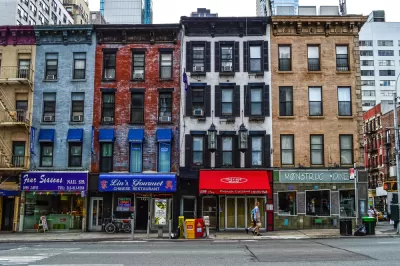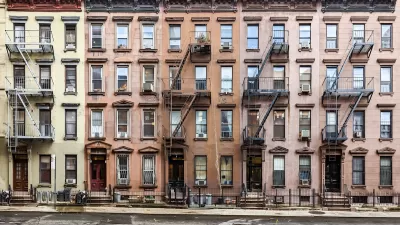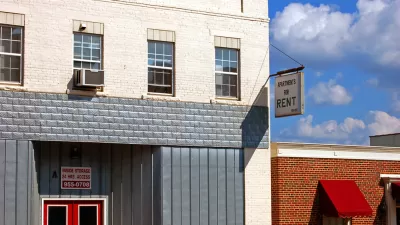Landlords with fewer properties say rent stabilization, eviction moratoriums, and rising costs for repairs and maintenance are making it impossible for them to keep their businesses going.

An increasingly vocal new political identity is emerging among New York City property owners, writes Molly Osberg in Curbed: the “underdog landlord,” the small-scale property owners who feel cheated by renter protections and ignored by the city.
“In the nearly three years since the start of the COVID-19 pandemic, millions of tenants have engaged in rent strikes, whether declared or de facto, while membership in tenant unions and building associations ballooned. Somewhere in all of this tension between renters and owners, more landlords began to publicly embrace the language of a protected class being ignored, or worse, by its elected officials.”
According to Osberg, “An estimated 28 percent of New York City’s 2.3 million rental units are held by landlords who own fewer than five properties, which is what passes for a mom-and-pop shop in a city of megadevelopers and private-equity ownership.” Landlords have organized online campaigns and protests and filed lawsuits to challenge New York renter protection laws, arguing that they violate their Fifth Amendment rights and essentially constitute a taking of their property, forcing them to continue renting when they don’t want or can't afford to.
Tenant advocates say these arguments are disingenuous, and that landlords often fail to reinvest in fixing aging buildings, opting instead to buy more properties and earn passive income. As Osberg explains, “Small property owners are a shrinking minority in an economy that favors the deep-pocketed and in a landscape where buying and renting property is as much about securing cyclical returns on investment as providing a stable place to live.”
Osberg’s article outlines the landlords’ concerns and the growing movement to ensure what they see as their constitutional rights via activism and legal actions.
FULL STORY: ‘If You Can’t Exclude Someone, Do You Even Own It?’

Alabama: Trump Terminates Settlements for Black Communities Harmed By Raw Sewage
Trump deemed the landmark civil rights agreement “illegal DEI and environmental justice policy.”

Planetizen Federal Action Tracker
A weekly monitor of how Trump’s orders and actions are impacting planners and planning in America.

How Atlanta Built 7,000 Housing Units in 3 Years
The city’s comprehensive, neighborhood-focused housing strategy focuses on identifying properties and land that can be repurposed for housing and encouraging development in underserved neighborhoods.

In Both Crashes and Crime, Public Transportation is Far Safer than Driving
Contrary to popular assumptions, public transportation has far lower crash and crime rates than automobile travel. For safer communities, improve and encourage transit travel.

Report: Zoning Reforms Should Complement Nashville’s Ambitious Transit Plan
Without reform, restrictive zoning codes will limit the impact of the city’s planned transit expansion and could exclude some of the residents who depend on transit the most.

Judge Orders Release of Frozen IRA, IIJA Funding
The decision is a victory for environmental groups who charged that freezing funds for critical infrastructure and disaster response programs caused “real and irreparable harm” to communities.
Urban Design for Planners 1: Software Tools
This six-course series explores essential urban design concepts using open source software and equips planners with the tools they need to participate fully in the urban design process.
Planning for Universal Design
Learn the tools for implementing Universal Design in planning regulations.
Caltrans
Smith Gee Studio
Institute for Housing and Urban Development Studies (IHS)
City of Grandview
Harvard GSD Executive Education
Toledo-Lucas County Plan Commissions
Salt Lake City
NYU Wagner Graduate School of Public Service





























